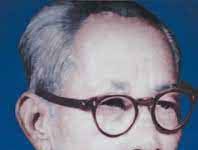Napoleon III | Brief Biography
Napoleon III
Napoleon III (born Charles-Louis Napoleon Bonaparte; April 20, 1808 – January 9, 1873) was the Emperor of France from 1852 to 1870. He was the only president of the French Second Republic to be elected by a direct popular vote and the first president of France to be elected for a second term. He is often referred to as the first modern authoritarian leader in Western Europe.
Early Life
Napoleon III was born in Paris, France, as the third son of Louis Bonaparte and Hortense de Beauharnais. His father, Louis Bonaparte, was the brother of Napoleon Bonaparte, the former emperor of France. Napoleon III’s early life was marked by the fall of his uncle’s empire, and he grew up in exile in Switzerland, Italy, and the United States.
Rise to Power
Napoleon III returned to France in 1840 and quickly became involved in politics. He ran for president in 1848 but was defeated. In 1851, he staged a failed coup attempt and was exiled to Britain. He returned to France in 1852 and was elected president in December of that year. In 1852, he was proclaimed emperor of France and took the name Napoleon III.
Reign as Emperor
As an emperor, Napoleon III pursued a foreign policy aimed at expanding the French Empire. He supported the creation of a Latin Union, a group of Latin-speaking countries that would promote trade and cultural exchange. He also pursued a colonial policy, with France acquiring colonies in Africa, Indochina, and other regions.
Domestically, he implemented a series of reforms aimed at modernizing the country. He invested in infrastructure, such as railroads and canals, and encouraged industrialization. He also made some political reforms, such as granting greater political rights to Jews and Protestants.
Fall from Power
His reign was marked by a series of military failures and domestic challenges. In 1870, France declared war on Prussia and suffered a catastrophic defeat. Napoleon III was captured at the Battle of Sedan, and the Third Republic was proclaimed in September of that year. Napoleon III was exiled to England, where he lived for the rest of his life.
Death and Legacy
Napoleon III died on January 9, 1873, in Chislehurst, England. His legacy is a mixed one. On the one hand, he is credited with modernizing France and pursuing an ambitious foreign policy. On the other hand, his reign is also associated with authoritarianism and military failure. 0 0 0.
N.B. The article originally belongs to the book ‘Brief Biographies of Eminent Monarchs‘ by Menonim Menonimus.
Books of Biography by M. Menonimus:
- The World Writers-Brief Biographies
- Introduction to World Writers
- Introduction to World Personalities
- Love of Reputed Persons
- Brief Biographies of Ancient Thinkers and Writers..
Additional Searches:











